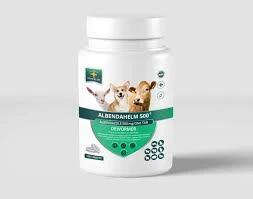- Afrikaans
- Albanian
- Amharic
- Arabic
- Armenian
- Azerbaijani
- Basque
- Belarusian
- Bengali
- Bosnian
- Bulgarian
- Catalan
- Cebuano
- Corsican
- Croatian
- Czech
- Danish
- Dutch
- English
- Esperanto
- Estonian
- Finnish
- French
- Frisian
- Galician
- Georgian
- German
- Greek
- Gujarati
- Haitian Creole
- hausa
- hawaiian
- Hebrew
- Hindi
- Miao
- Hungarian
- Icelandic
- igbo
- Indonesian
- irish
- Italian
- Japanese
- Javanese
- Kannada
- kazakh
- Khmer
- Rwandese
- Korean
- Kurdish
- Kyrgyz
- Lao
- Latin
- Latvian
- Lithuanian
- Luxembourgish
- Macedonian
- Malgashi
- Malay
- Malayalam
- Maltese
- Maori
- Marathi
- Mongolian
- Myanmar
- Nepali
- Norwegian
- Norwegian
- Occitan
- Pashto
- Persian
- Polish
- Portuguese
- Punjabi
- Romanian
- Russian
- Samoan
- Scottish Gaelic
- Serbian
- Sesotho
- Shona
- Sindhi
- Sinhala
- Slovak
- Slovenian
- Somali
- Spanish
- Sundanese
- Swahili
- Swedish
- Tagalog
- Tajik
- Tamil
- Tatar
- Telugu
- Thai
- Turkish
- Turkmen
- Ukrainian
- Urdu
- Uighur
- Uzbek
- Vietnamese
- Welsh
- Bantu
- Yiddish
- Yoruba
- Zulu
Nov . 16, 2024 04:23 Back to list
Effective Medications for Treating Tapeworms in Dogs and Ensuring Their Health
What Medicine Kills Tapeworms in Dogs?
Tapeworms are a common parasitic infection in dogs that can lead to a range of health problems. These long, flat worms live in the intestines of their host and feed on the nutrients from the dog's food. While they do not typically cause serious illness, a significant infestation can lead to symptoms like weight loss, vomiting, diarrhea, and an itchy rear end. It is essential for dog owners to understand how to identify and treat tapeworm infections effectively.
The most common types of tapeworms that infect dogs are Dipylidium caninum and Echinococcus granulosus. Dogs typically become infected when they ingest fleas carrying the larvae of Dipylidium caninum or consume infected rodents or other animals. Recognizing the signs of infection is crucial; look for visible segments of the tapeworm near the dog’s anus or in its feces, which may appear as small, rice-like grains.
When it comes to treating tapeworms in dogs, several medications, known as anthelmintics, are effective. One of the most commonly prescribed medications for tapeworms is praziquantel. This drug works by causing severe spasms in the tapeworms, leading to their detachment from the intestinal wall, followed by their eventual death and elimination from the dog’s body. Praziquantel is available in various forms, including tablets, injectables, and topical preparations.
Another option is fenbendazole, which is primarily used for a variety of intestinal parasites, including roundworms and hookworms, but it also has some effectiveness against tapeworms
. Fenbendazole usually requires multiple doses over a few days, making it more time-consuming than praziquantel.what medicine kills tapeworms in dogs

For severe infestations, a vet may recommend a combination of medications to ensure the complete eradication of the tapeworms. It's important to follow the veterinarian’s instructions regarding dosage and duration of treatment, as not adhering to this can lead to incomplete treatment and potential recurrence of the infection.
In addition to medication, it’s crucial to address the underlying causes of the infection. Flea prevention is vital since fleas are a common vector for tapeworms. Regular grooming and appropriate flea control measures, like topical treatments or flea collars, can significantly decrease the risk of your dog contracting tapeworms.
Hygiene practices around your dog's living environment also play a role in prevention. Regularly cleaning your dog's bedding, keeping the yard tidy, and disposing of feces promptly can help minimize exposure to tapeworm larvae in the environment.
In conclusion, tapeworms can pose a nuisance to your canine companion, but with appropriate veterinary intervention and preventive measures, you can protect your dog from these parasites. If you suspect your dog has a tapeworm infection, consult your veterinarian for an accurate diagnosis and effective treatment options. With the right approach, you can ensure your dog remains happy, healthy, and free from tapeworms.
-
Guide to Oxytetracycline Injection
NewsMar.27,2025
-
Guide to Colistin Sulphate
NewsMar.27,2025
-
Gentamicin Sulfate: Uses, Price, And Key Information
NewsMar.27,2025
-
Enrofloxacin Injection: Uses, Price, And Supplier Information
NewsMar.27,2025
-
Dexamethasone Sodium Phosphate Injection: Uses, Price, And Key Information
NewsMar.27,2025
-
Albendazole Tablet: Uses, Dosage, Cost, And Key Information
NewsMar.27,2025













